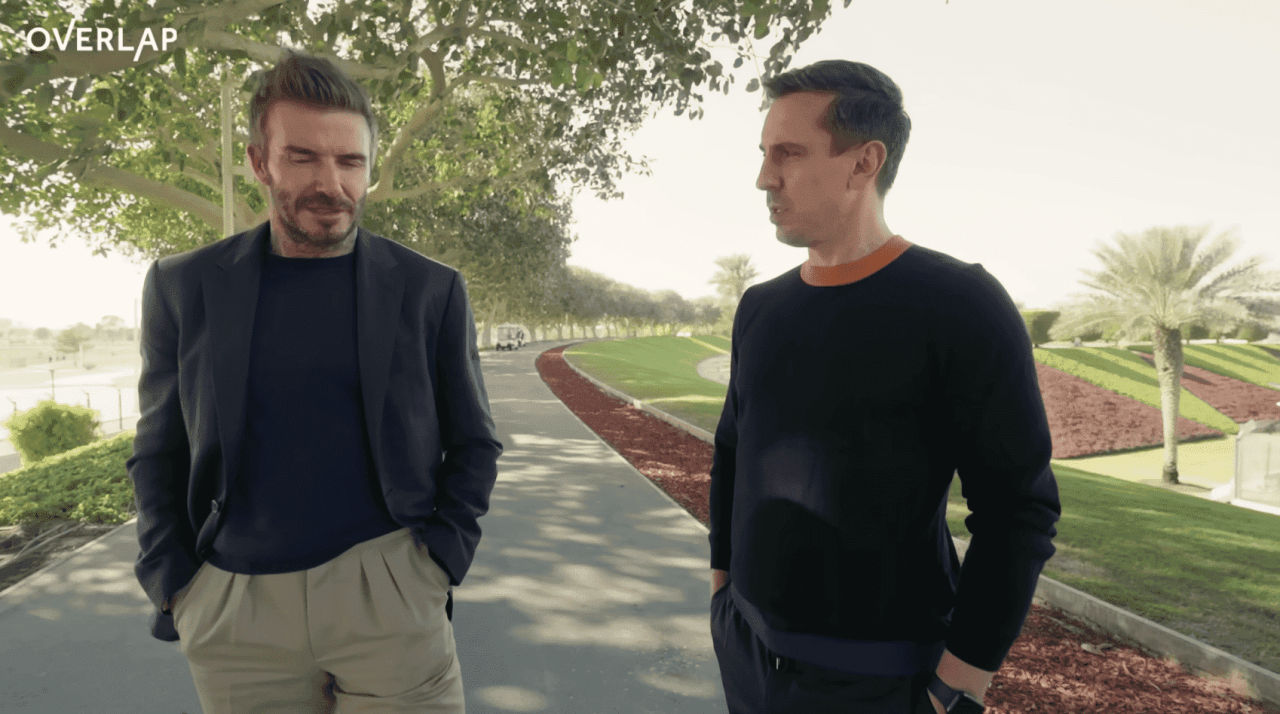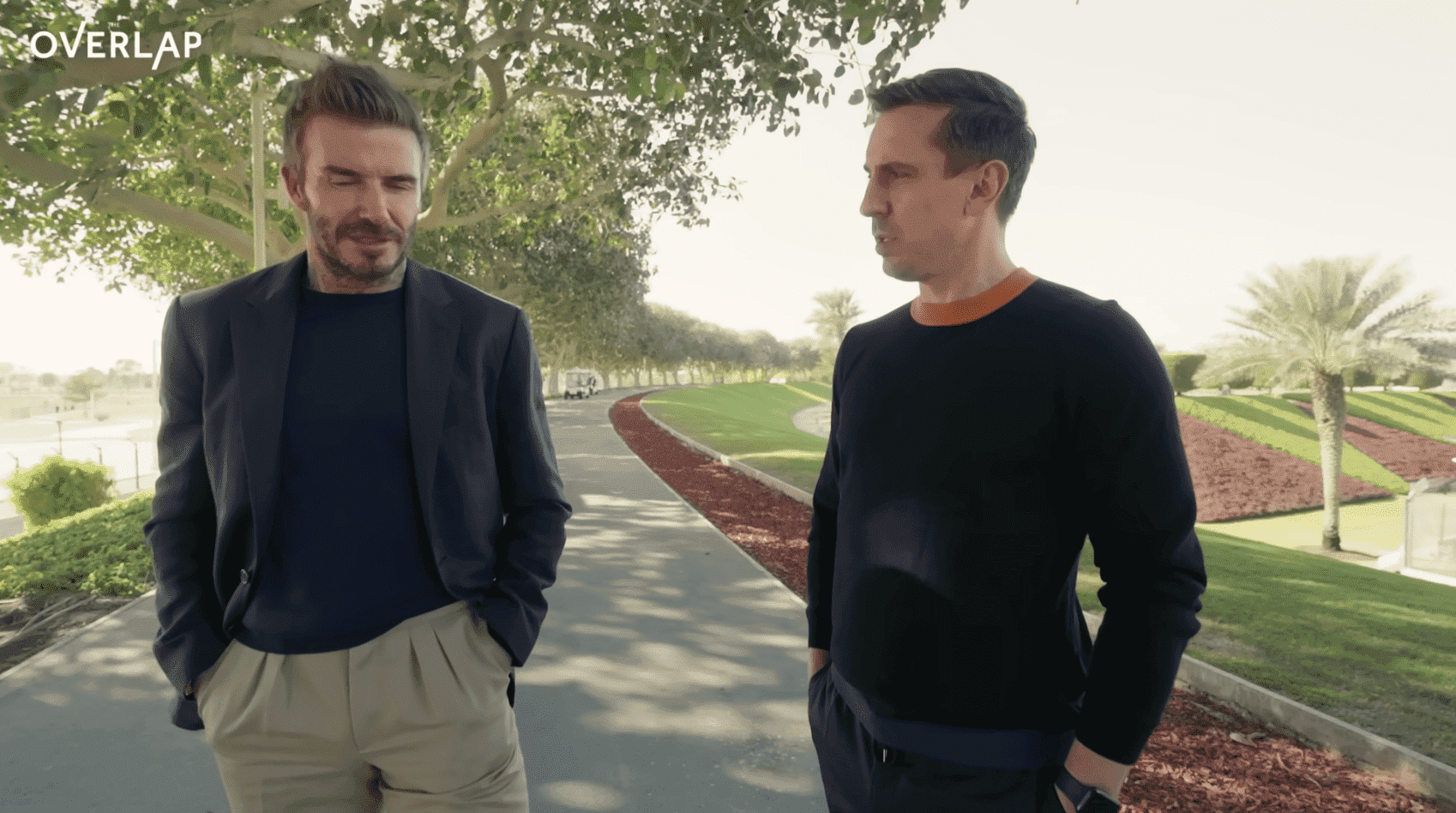David Beckham has come under fire for failing to speak out about human rights abuses in Qatar. Amnesty International said his recent walkabout interview with Gary Neville in Doha was a missed opportunity.
‘It’s a shame the film makes no mention at all of Qatar’s long history of labour abuses, its shocking criminalisation of homosexuality or in fact any other human rights issue,’ a spokesman for Amnesty said. So should Beckham – who signed a controversial deal in 2021, worth millions, to act as an ambassador for the World Cup in Qatar – have piped up?
On the face of it, it’s hard to argue with Amnesty. The organisation has been consistent in its criticism of celebrity endorsements such as Beckham’s and their overall position on Qatar 2022 seems reasonable enough. They are not calling for a boycott, just for those with the power to do so to make the occasional reference to what most would agree is a seriously concerning situation.
The Beckham brouhaha is a foretaste of the ethical dilemmas that will be wrestled with across the land in the lead up to the tournament
Beckham certainly has such power, and little excuse not to use it. He is already fabulously wealthy, which is not the case with all ex-pros. This means he can hardly say he needs the money. He is also a philanthropist, who has a long working association with Unicef amongst others. Having entered that arena, he surely has an obligation to be consistent in supporting certain basic principles and calling out those that appear to violate them?
On the other hand, Neville didn’t ask Beckham during the video interview about human rights, and his supportive comments about the country were mild, even banal. Beckham referred to the ‘warmth and hospitality’ of the Qatari people, which is hardly a ringing endorsement of the ‘kafala’ system of indentured labour or the strict laws against homosexuality. Beckham was probably just being sincere and polite, having had a long association with the country: he’s been friends with Nasser al-Khelaifi, a Qatari businessman and the president of Paris-Saint Germain, for years.
Beckham is also a private individual, not an elected MP or member of the clergy. He is entitled to earn money to support his family in any way he chooses and express himself as he wishes. And if we are being generous, it may be that Beckham does privately harbour doubts about Qatar. Perhaps he feels that ingratiating himself with the people and adding his star wattage to the world’s spotlight on the country and its issues is a better way of facilitating change in the long-term than denouncing the country or refusing to engage at all.
Still, Amnesty surely has a point. And there is a feeling from the interview between Beckham and Neville of two very well-remunerated ex-pros trying to have their kanfaroush (Qatari cake) and eat it. The spotlight argument is weak: imagining migrant workers will be better treated once the world’s sporting media caravan has moved on, or even that any particular attention will be paid to Qatar after the World Cup finishes on 18 December, is surely just a fantasy concocted to salve a few bruised consciences.
Whatever the rights and wrongs of this particular episode, the Beckham brouhaha is a foretaste of the ethical dilemmas that will be wrestled with across the land in the lead up to the tournament. Just as the England team are apparently considering how they will signal their concerns, football fans uneasy by the hosting of the World Cup in Qatar will need to decide how they approach the tournament come November.
What ought to be a pleasurable gradual buildup of excitement and anticipation will be clouded by nagging moral qualms. Those with the angriest voices of condemnation will need to ask themselves if even watching the matches makes them complicit.
Coming on the back of a fractious Euros, the ill-starred Beijing winter Olympics, an ugly violence-marred Champions League final and a politicised Wimbledon, it is all rather demoralising. It’s enough to make sports fans yearn for a world which is genuinely ‘warm and hospitable’, and where we don’t need to search our souls before watching major events.








Comments